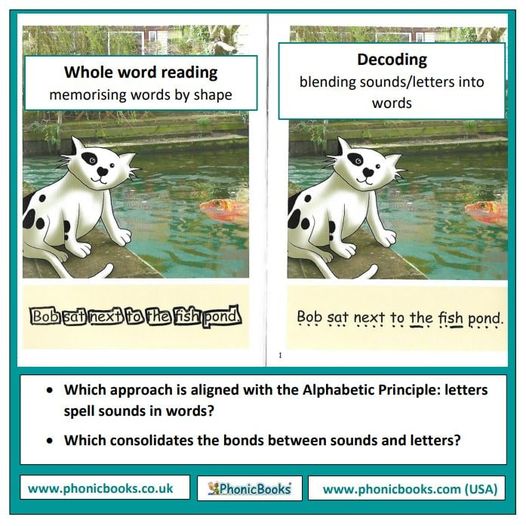Many schools are moving away from teaching children to recognise whole words to teaching them how to decode. It is important for anyone reading with children, or teaching them to read, to understand why this is so significant.
The approach of teaching kids to recognise whole words is a ‘top down’ approach. It requires children to memorise the word by shape. Remember those ‘Look and Say’ days? Children would be given flash cards with words on them and expected to remember how to read and spell them. This approach has failed many, many children. Why? Because after a while, precious memory gets clogged up. Each word is memorised in isolation with no connection to any other words. The typical result of this failing approach is the ‘Year 4 slump’. Kids seem to be reading OK until Year 4 when suddenly they stop making progress. A sign that they can no longer remember more words and are completely stuck.
The decoding approach is a ‘bottom up’ approach. Kids learn to segment individual sounds in words, how these sounds are represented by letters and how to blend the sounds/letters into words. Because every word can be broken up into spellings (graphemes), the decoding route is like having a versatile box of Lego bricks that you can reassemble every time, reusing bits that you already know. So decoding is much more efficient, as it makes links between words with the same spellings and enables kids to teach themselves to read new words. This approach is supported by research. The image above demonstrates how a child would see words in a text in these two different approaches.
If we follow the Alphabetic Principle – that letters spell sounds in words – then we should be consistent and teach children to decode all words, even high-frequency words (sight words). To see our graphics on how to decode high-frequency words click the links below:
#decoding #phonicsreading #phonicsforkids


